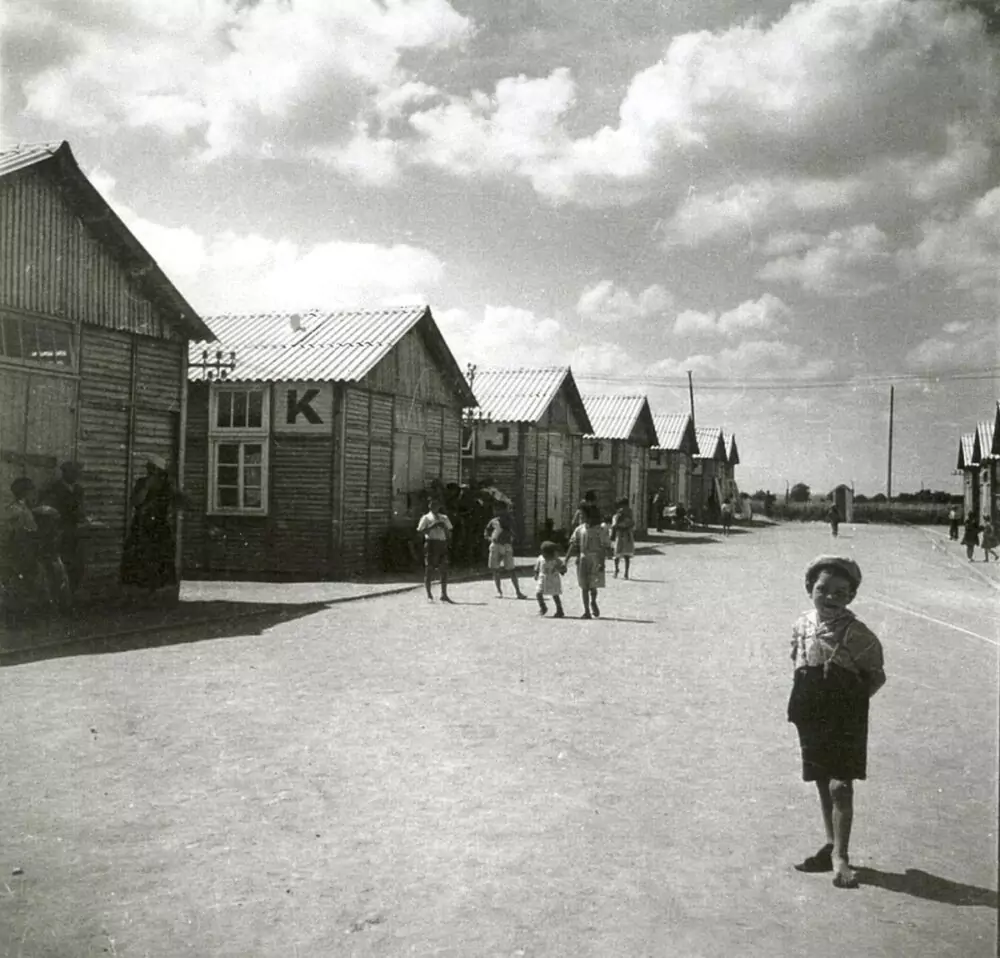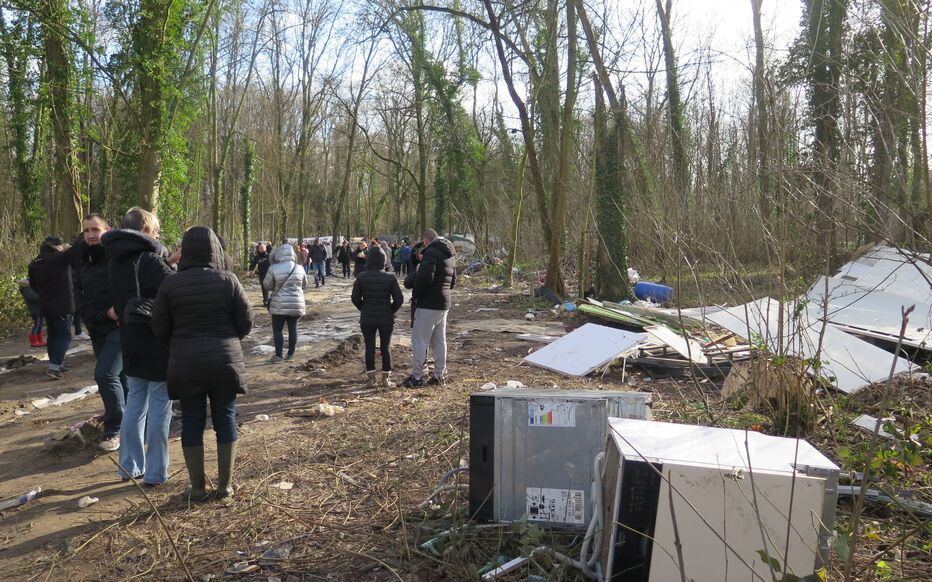Delage / Tepeneag (2013) report on a residential project in the Romanian Tinca, a project supported by the municipality of Lyon with 300,000 euro. The aim of subsidised housing for local Rroma is to help them integrate into the labour market. Lyon follows the whishes of the French government to prevent the Rroma migration to France. However, accommodation does not solve the problem of high unemployment among Romanian Rroma, hence their lack of social integration which can only be successful be bridged with a commitment from both sides. Delage / Tepeneag summarize: “Ainsi, pour ce centre imaginé par des ONG françaises et roumaines, et qui accueillera bientôt les Roms les plus démunis de Tinca, Lyon a investi près de 300.000 euros. “Cela va permettre de leur assurer l’accès à des douches, à des lave-linges, pour qu’ils puissent se présenter décemment à d’éventuels entretiens d’embauche, ou à l’école pour les enfants”, explique à BFMTV Monica Suciu, de la Ruhuma Foundation” [Thus, for this centre imagined by French and Romanian NGOs, and which will soon welcome the poorest Rroma in Tinca, Lyon has invested about 300,000 euro. “This will allow them to access to showers to washing machines, so they can look decent for possible job interviews or at school for children”, Monica Suciu, of the Foundation Ruhuma told BFM TV.] France Info (2013) adds that there is a will to build a dignified existence on site among the Romanian Rroma. Often this is very difficult because of the access to the labour market is very restricted. The Romanian Rroma policies, according to the statements of Rroma in Tinca, are ineffective.
Delpla (2013) takes a critical look at the French Rroma policies. He criticises the dominant practice to return Rroma to their reported country of origin. On the one hand one ignores the massive discrimination in countries like Hungary or Romania – now also France – and on the other hand, the fact that they are a European transnational minority and therefore, have no particular homeland. What must be sought is a pan-European integration of Rroma and no back and forth between different a minority status in nation-states: “La solution du gouvernement français est de renvoyer les Roms non nationaux dans leur pays d’origine, en expliquant que c’est à ces pays d’origine de s’en occuper – avec des fonds européens. C’est une mauvaise idée, car, dans ces pays d’origine, les Roms sont victimes de racisme manifeste […] Il faut traiter ce problème au niveau européen, à la fois parce que les Roms sont le peuple le plus transeuropéen et parce que les solutions nationales ne marchent pas.”[The solution of the French government to send non-French Rroma in their countries of origin, explaining that this is for their country to deal with – with European funds. This is a bad idea, because in the country, Rroma are victims of overt racism […] We must deal with this problem at European level, both because the Rroma are the most transnational people and because national solutions do not work.] Delpla also argues for making the Rroma citizen of Europe only and not members of a specific state. This would strengthen the EU’s role in the enforcement of their rights massively according to Delpla.
Bouclay (2013) in his article for Valeurs Actuelles pokes fun at the efforts of the community Romeurope. The collective in his brochure simply blends out the prejudice against the Rroma on issues such as begging, theft and prostitution. According to Bouclay, the Rroma are receiving proportionally too much support: “En réalité, loin d’être une communauté soumise à la vindicte de Français xénophobes, les Roms sont soutenus par de puissants lobbys. Le collectif Romeurope compte une quarantaine d’associations financées par l’argent public. Sans viser à l’exhaustivité, un rapide florilège de leurs subventions suffit à donner le vertige.” [In fact, far from being a community subject to the condemnation of French xenophobia, Roma are backed by powerful lobbies. The Romeurope account forty associations funded by public money. Without aiming to be exhaustive, quick flurry through their subsidies is enough to make you dizzy.] He paints a very one-sided picture of support funds distributed to present the French Rroma policies in a good light. The actual points of discussion of the current debate remain virtually untouched.
- Bouclay, Pierre-Alexandre (2013) Roms: l’argent du lobby. In: Valeurs actuelle online vom 23.10.2013. http://www.valeursactuelles.com/roms-l’argent-lobby20131023.html
- Delage, Julia/Tepeneag, Nastasia (2013) Roumanie: Lyon finance des projets pour les Roms. In: BFMTV online vom 24.10.2013. http://www.bfmtv.com/international/roumanie-lyon-finance-projets-roms-630358.html
- Delpla, Jacques (2013) La question des Roms ne trouvera de réponse qu’à Bruxelles. In: Les Echos online vom 25.10.2013. http://lecercle.lesechos.fr/economie-societe/international/europe/221182975/question-roms-trouvera-reponse-qua-bruxelles
- France Info (2013) Aider les Roms en Roumanie. In: France Info online vom 24.10.2013. http://www.franceinfo.fr/societe/le-zoom-france-info/aider-les-roms-en-roumanie-1188091-2013-10-24







